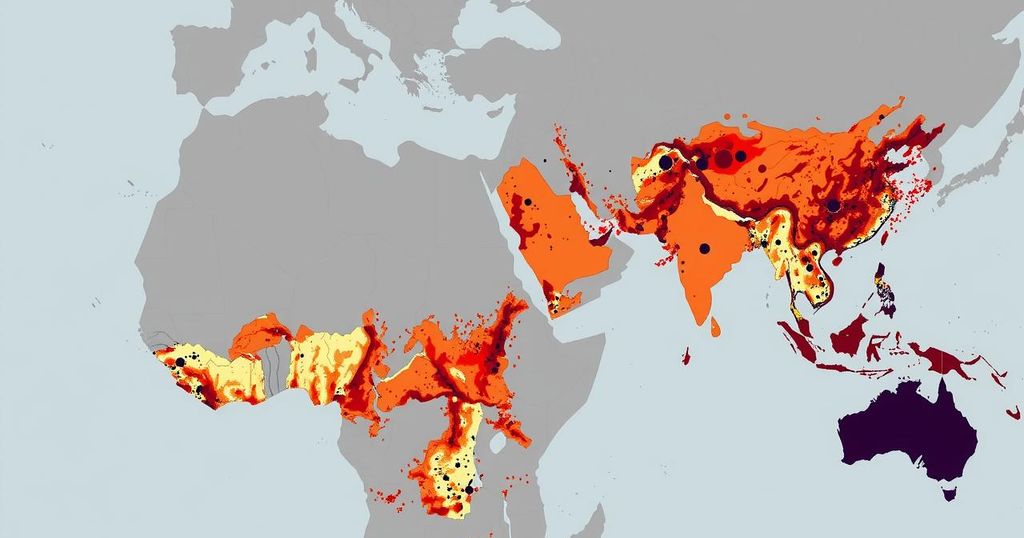Western mining companies in Mali, Niger, and Burkina Faso face increasing challenges as military regimes seek to renegotiate mining contracts and establish control over resources. Recent developments include the arrest of mining executives, permit threats, and asset seizures that have intensified the risks for investors and insurers in the region, raising concerns about long-term investment stability.
Western mining companies operating in Mali, Niger, and Burkina Faso are increasingly encountering significant obstacles as military juntas intensify their efforts to renegotiate mining contracts and exert control over natural resources. Recent developments include the apprehension of mining executives in Mali, imminent threats to revoke permits in Burkina Faso, and the appropriation of a uranium site previously managed by French operators in Niger. These actions come amid soaring gold and uranium prices and a regional pivot towards Russia, generating considerable uncertainties for both investors and insurers.
Mali, recognized as Africa’s second-largest producer of gold, has enacted a new mining code, which has sparked disputes over tax obligations and contractual agreements. Concurrently, insurance premiums for projects within the region have escalated due to these heightened risks. While mining output remains consistent, analysts caution that companies already engaged in the Sahel are under increasing duress, prompting concerns regarding long-term stability and the overall attractiveness of investment within the region.
The evolving political landscape in Mali, Niger, and Burkina Faso has created a complex environment for foreign mining interests. Military-led regimes are asserting new governance models, which include revising mining agreements to enhance state control. Such activities have heightened tensions, particularly against the backdrop of rising commodity prices and shifting geopolitical relations, notably a growing alignment with Russian influence. This context has made the region a focal point for analysts assessing investment risks and operational viability in the mining sector.
In summary, the actions of military juntas in Mali, Niger, and Burkina Faso represent a confluence of risks for Western mining companies. The recent seizures of assets, potential revocations of permits, and new regulatory frameworks have introduced significant uncertainties. While the production levels may remain stable presently, the evolving regulatory landscape and geopolitical shifts warrant caution among investors, as long-term stability in the region comes into question.
Original Source: www.africa.com






